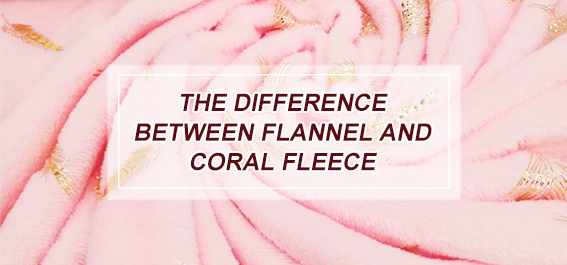What is the difference between flannel and coral fleece?

In terms of the characteristics of the fabric and the warmth retention effect, both flannel and coral fleece fabrics, with soft fluff on the surface, have a comfortable wearing feeling and a good warmth retention effect.
But from the point of view of the manufacturing process, these two fabrics are completely different, and the woven textiles have differences after careful comparison. What are these differences?
Introduction to the difference between flannel and coral fleece:
Before weaving, the flannel fabric is made by dyeing wool and blending wool with primary colors. It adopts twill weave and plain weave technology, and has been processed by milling and napping at the same time. The knitted product is soft and compact. specialty.
The fabric of coral fleece uses polyester fiber as the raw material. The weaving process is mainly heated, deformed, cooled, and shaped. The weaving process is also improved and upgraded year by year. New processes are constantly added to make the fabric have a richer sense of hierarchy and Rich colors.
Introduction to the difference between flannel and coral fleece 2:
From the selection of raw materials, it can be seen that the wool raw material used in flannel is very different from the polyester fiber used in coral fleece.
It can be found from the finished products that the fabric of flannel is thicker, the density of the pile is very close, and the density of the pile of coral fleece is relatively sparse. Because of the raw material, the feel of the pile is also slightly different. The hand feel is more delicate and soft, and the thickness and warmth of the fabric are also different. The flannel made of wool is thicker and more warm.
From the selection of production technology and raw materials, we can clearly understand the difference between flannel and coral fleece?
From the comparison of the feel and warmth of the fabric, it is better to use wool as the raw material flannel. Therefore, it can be seen that the difference between the two fabrics is the cost of the fabric, the warmth, the feel and the density of the fabric fluff and whether it is lint.
